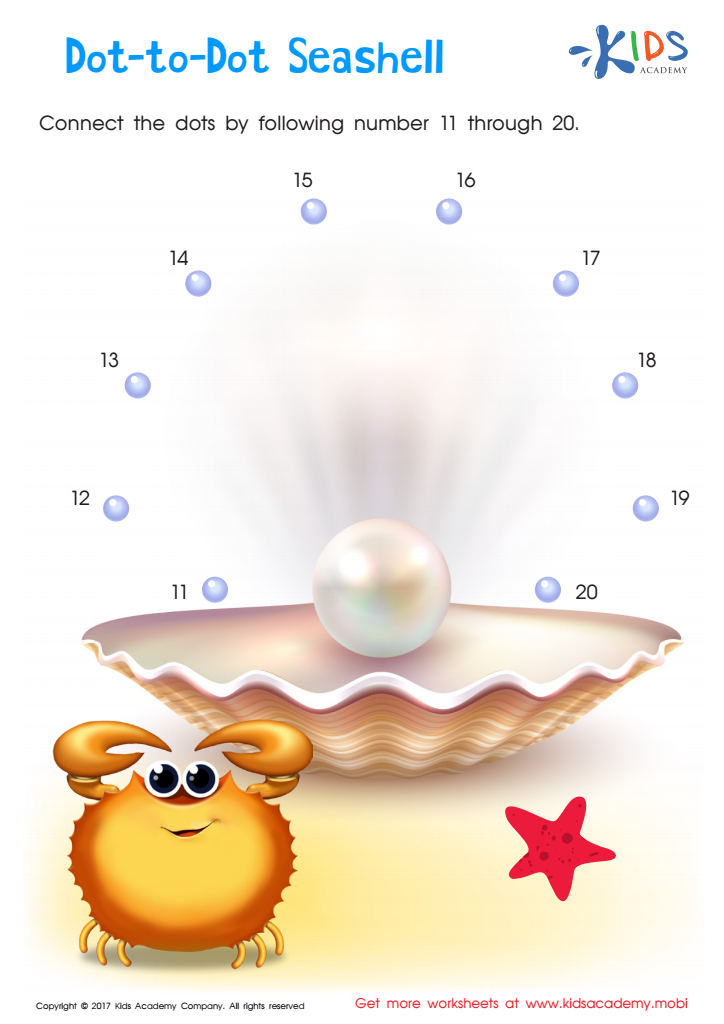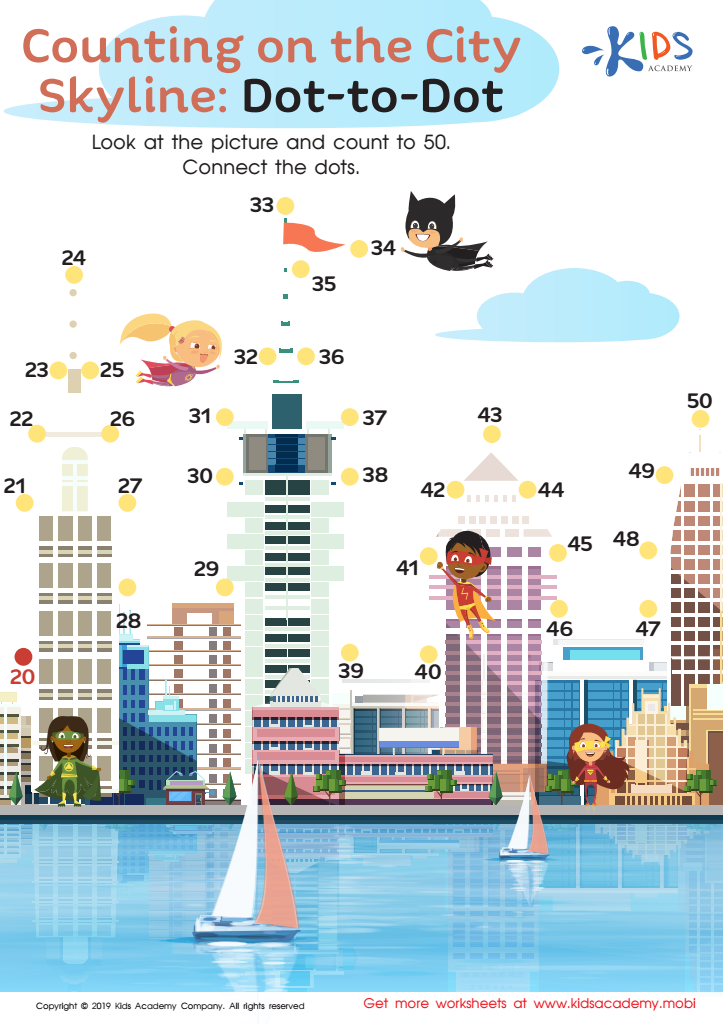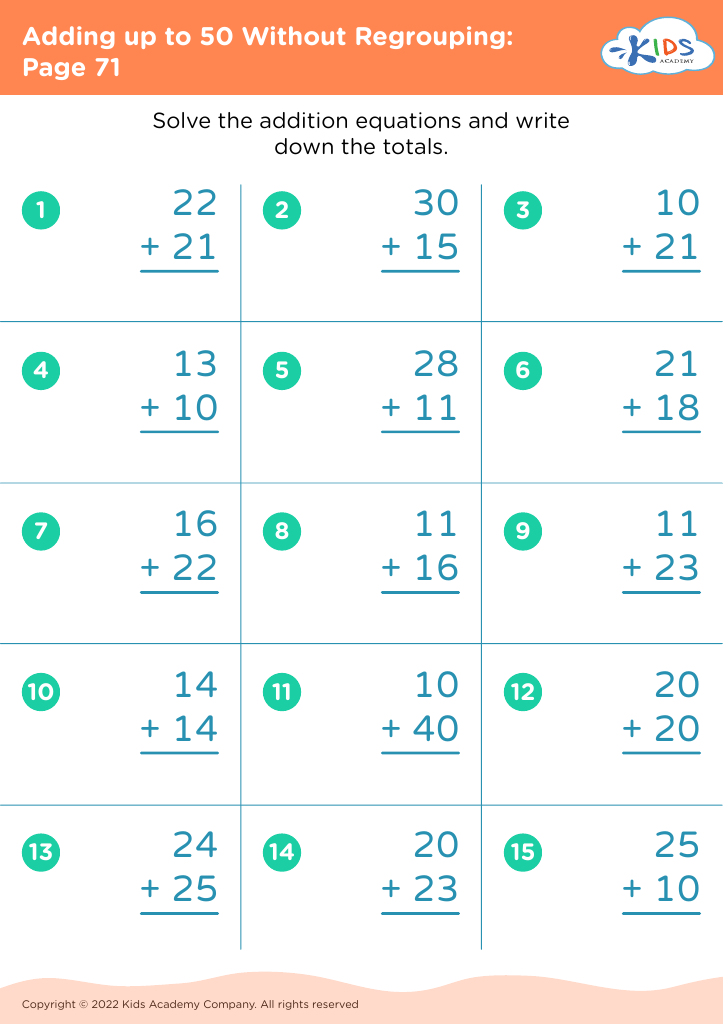Number sequence learning Math Worksheets for Ages 4-7
3 filtered results
-
From - To
Discover our engaging Number Sequence Learning Math Worksheets tailored for children ages 4-7! These worksheets are designed to help young learners develop essential math skills, focusing on recognizing and creating number sequences. Through fun activities and interactive exercises, kids will enhance their counting abilities while boosting their critical thinking and problem-solving skills. Ideal for home or classroom use, our worksheets cater to various learning styles, ensuring every child can succeed. Join us in making math exciting and accessible! Download our printable worksheets today and watch your child’s confidence grow as they master number sequences with ease.


Ordering 11–20: Dot–to–dot Seashell Printable


Counting on the City Skyline: Dot-to-Dot Worksheet
Number sequence learning is fundamental for children aged 4-7, as it lays the groundwork for their mathematical understanding and reasoning. Mastering number sequences helps children recognize patterns, intervals, and the relationship between numbers, which are crucial cognitive skills for future mathematical concepts such as addition, subtraction, and even more complex operations.
For parents and teachers, engaging children in number sequence activities can boost their confidence and promote positive attitudes towards math at an early age. Fun activities like counting games, songs, and puzzles not only enhance numeracy skills but also stimulate children's memory and critical thinking.
Moreover, consistent practice in number sequencing aids in nurturing a strong foundation for later academic success. Early exposure to structured math experiences fosters curiosity and problem-solving skills, preparing children for the more complicated math they’ll encounter in later grades.
Additionally, these activities bolster language development, as children learn to verbalize numbers and understand related vocabulary. By emphasizing number sequence learning, parents and teachers can equip children with essential life skills, promoting both cognitive growth and a lifelong appreciation for math. Supporting these early learning opportunities will ultimately lead to more positive educational outcomes and a robust mathematical foundation.

 Assign to My Students
Assign to My Students















